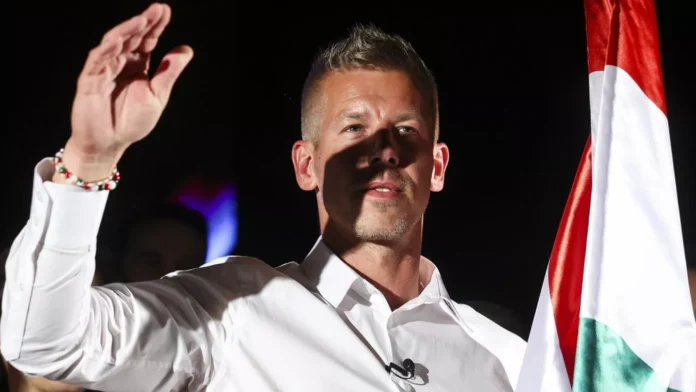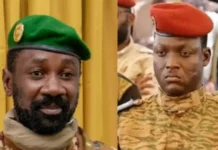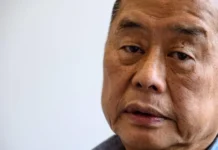Written by Lisa Murimi
Hungarian opposition leader Peter Magyar has accused Russia of direct interference in the country’s domestic politics after Moscow’s Foreign Intelligence Service (SVR) claimed that the European Commission was considering “regime change in Budapest.”
The SVR statement, issued Wednesday, alleged that Brussels saw Prime Minister Viktor Orban’s leadership as a barrier to European unity, particularly over his pro-Russia stance and resistance to military support for Ukraine.
The Russian agency also depicted Magyar as aligned with “globalist elites” opposed to Orban’s nationalist policies—a characterization echoing rhetoric often used by Hungary’s ruling Fidesz party.
Magyar, whose centre-right Tisza Party is leading Orban’s Fidesz in opinion polls ahead of next spring’s parliamentary elections, called the remarks an “operation officially launched against Hungary” by a “foreign, non-allied country.”
In a Facebook post, he warned that Moscow’s words were an attempt to sway voters during a decisive election year.
Orban, in power since 2010, has faced consistent criticism from EU partners over his close ties to Russian President Vladimir Putin. He has opposed EU sanctions on Russian energy and blocked certain collective aid measures for Ukraine.
Last October, Orban accused the EU of plotting to remove him from office—an allegation now mirrored in the SVR’s narrative.
Foreign Minister Peter Szijjarto dismissed Magyar’s concerns, saying Russia’s statements were “nothing new” and aligned with the government’s own past claims about Brussels’ intentions.
From a diplomatic perspective, the episode has implications far beyond Hungary’s borders. Analysts view the SVR’s intervention as part of a broader Russian strategy to exploit political fault lines within the EU and NATO.
Since its 2022 full-scale invasion of Ukraine, Moscow has intensified influence operations—combining disinformation, economic leverage, and targeted political messaging—to fracture Western consensus.
Hungary’s unique position makes it both a valuable partner for Russia and a strategic vulnerability for the EU. Orban’s resistance to sanctions and his ongoing engagement with Moscow have created friction within European policymaking, where unanimity is often required.
By casting Orban as a defender of sovereignty and Magyar as a proxy of “globalist” forces, Russia taps into Hungary’s domestic political narratives while signaling support to other populist movements across Europe.
The timing is significant. With parliamentary elections approaching, external narratives can shift voter sentiment and deepen political polarization.
For the EU, the challenge lies in safeguarding electoral integrity in a member state without appearing to confirm accusations of external orchestration—an outcome that could strengthen nationalist backlash.
For NATO, the situation underscores the strategic risk of having a member whose leadership diverges from alliance policy on Ukraine. If unaddressed, Hungary could become a persistent pressure point, weakening the West’s unified stance against Russian aggression.
In the months ahead, Hungary’s political climate will serve as a test for the EU’s resilience—its ability to protect democratic processes internally while resisting external manipulation aimed at undermining its cohesion.



















